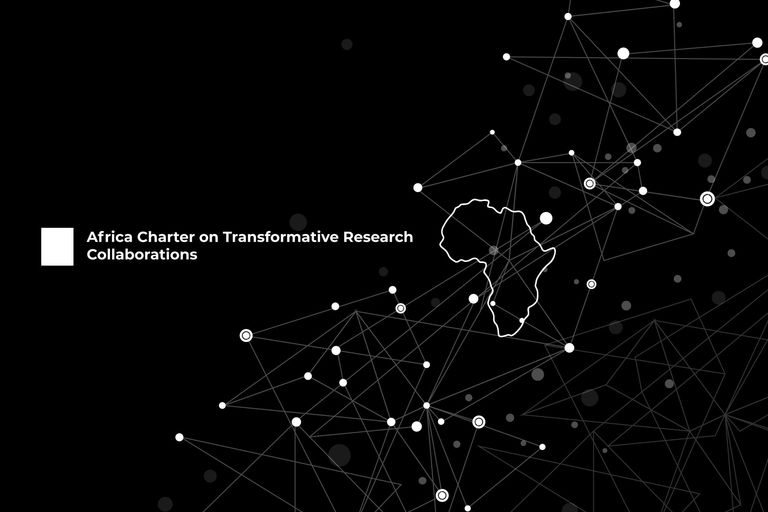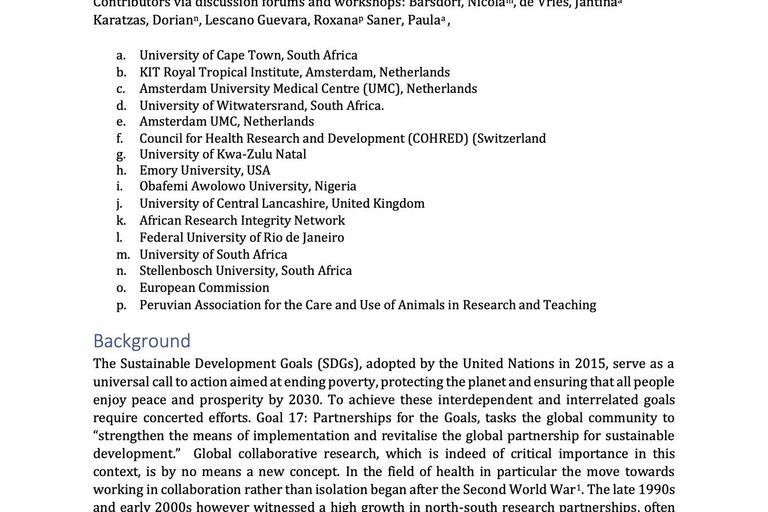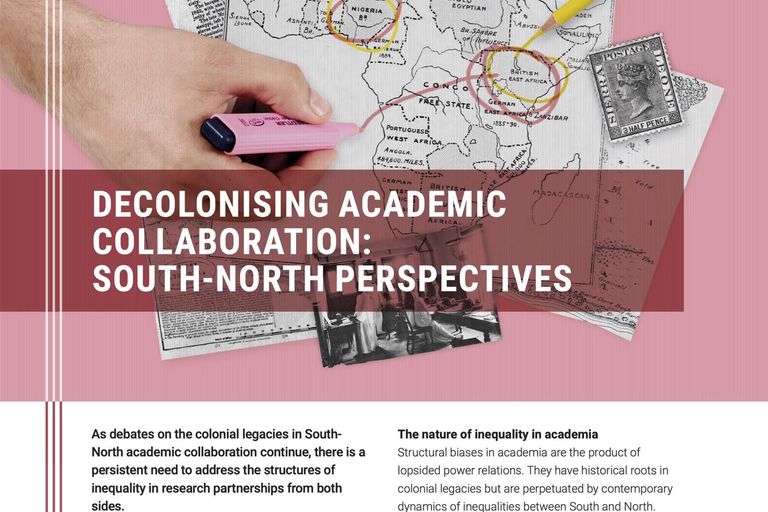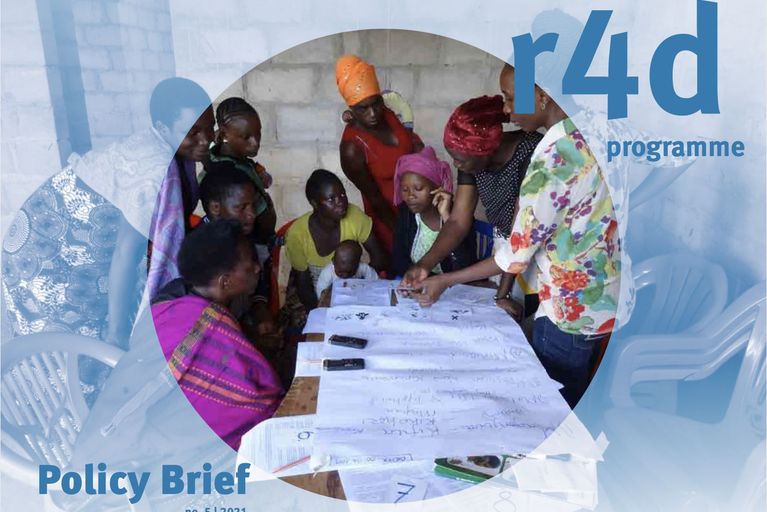Dazu gehört

Gleichberechtigte Wissenschaftskooperation weltweit
Exzellente Wissenschaft ist Grundvoraussetzung für die ökologische, soziale und ökonomische Transformation, die aufgrund globaler Krisen nötig ist. Dies gilt insbesondere für Länder mit mittlerem oder niedrigem Einkommen, da dort die lokalen Auswirkungen globaler Krisen sowie mögliche Lösungsansätze selten hinreichend gut untersucht sind. Internationale Wissenschaftskooperation ist für diese Länder unerlässlich, da ihre eigenen Haushaltsmittel für Wissenschaft meist sehr niedrig sind. Auch UN-Institutionen haben kaum Fördermittel für Wissenschaft, und multilateral vereinbarte Forschungsagenden beeinflussen die bilaterale Kooperation zu wenig. Internationale Wissenschaftskooperation muss gleichberechtigt organisiert werden. Diese Norm ist völkerrechtlich abgesichert und wird zudem in jüngster Zeit immer nachdrücklicher gefordert und auch differenzierter operationalisiert; Beispiele sind der „TRUST Code“ und die „Africa Charter“. Auch die deutsche Wissenschaftspolitik und -förderung hat diese Norm unzweideutig anerkannt; fast alle einschlägigen Grundsatzpapiere fordern seit Jahren das Prinzip der „Augenhöhe“ – also eine Kooperation unter gleichberechtigten Partnern. Dafür gibt es neben dem Gerechtigkeits-Argument mindestens fünf weitere Argumente: 1. Stärkung der Länder mit mittlerem oder niedrigem Einkommen in ihrer Fähigkeit zu Problemlösung und Transformation, 2. höhere Effizienz, 3. Stärkung einer regelbasierten globalen Zusammenarbeit, 4. Aufbau von Vertrauen und gegenseitigem Verständnis, sowie 5. bessere Positionierung im „Wettbewerb“ mit anderen Ländern um Kooperationspartner. Kooperationen gleichberechtigt durchzuführen bleibt dennoch zu oft nur ein Lippenbekenntnis, Gleichberechtigung wird bislang selten konsequent praktiziert. Dieses Positionspapier macht konkrete Vorschläge, um Gleichberechtigung in Förderrichtlinien und Ausschreibungen der deutschen Wissenschaftsförderung tatsächlich zu operationalisieren. Dies gilt für Grundlagen-, genauso wie für anwendungs- und problemorientierte Forschung in allen Disziplinen; der Fokus liegt auf der problemorientierten Forschung. So soll die internationale Wissenschaftskooperation mit Ländern mit mittlerem oder niedrigem Einkommen tatsächlich stärker gleichberechtigt ausgestaltet werden. Um dies zu erreichen, präsentiert dieses Positionspapier Impulse auf drei Ebenen. Erstens empfiehlt das Positionspapier sowohl auf einer kulturellen als auch strukturellen Ebene mehr Offenheit für plurale Formen des Wissens und Wissensträger/innen. Dies umfasst gelebte Pluralität in Begutachtung und Qualitätssicherung wie auch Strukturen des gemeinsamen Agenda-Settings bereits bei Ausgestaltung von Förderlinien und Ausschreibungen. Ein wichtiger Hebel für mehr Pluralität ist ferner die Stärkung von Institutionen und Förderstrukturen in den Partnerländern. Zweitens empfiehlt das Positionspapier der deutschen Regierung und den deutschen Förderorganisationen, in WTZ-Abkommen und nationalen Strategien auch Interessen der Partnerländer stärker zu berücksichtigen und gleichberechtigte Wissenschaftskooperation in Förderlinien und Ausschreibungen explizit aufzunehmen, zum Beispiel entlang der hier gemachten Impulse. Es soll dadurch besser möglich werden, Anträge gemeinsam zu formulieren und Pluralität von Wissen und Wissensträger/innen sicherzustellen; Projektzyklen zu verlängern und Projekte flexibler anzupassen; institutionelle Stärkung förderfähig zu machen und Mittelweitergabe an Partner zu ermöglichen bzw. zu vereinfachen; und schließlich, gleichberechtigte Projektverantwortung und die Verknüpfung von Partnerländern untereinander möglich zu machen. Drittens empfiehlt das Positionspapier, Forschenden in Projekten die Aushandlung und Festlegung gleichberechtigter Rollen und Zuständigkeiten zu ermöglichen, den wissenschaftlichen Publikationsprozess gleichberechtigt zu organisieren, und Maßnahmen der Wissenschaftskommunikation, insbesondere mit Blick auf (lokale) Wirksamkeit, zu überdenken.

Launching the Africa Charter for Transformative Research Collaborations
In conjunction with the AAU Biennial Conference Of Rectors, Vice Chancellors and Presidents of African Universities 2023 (COREVIP 2023), high-level representatives of major higher education (HE) and research institutes, networks, and funding and policy bodies in Africa, Europe and beyond came together for the launch of a new Africa Charter for advancing transformative research collaborations between Africa and the rest of the world. The ambitious Charter Initiative, a joint endeavour of Africa’s key HE bodies, and facilitated in partnership with the University of South Africa Chief Albert Luthuli Research Chair and the University of Cape Town Institute for Humanities in Africa (HUMA), aims to redress entrenched power imbalances in global knowledge production.

Fostering Research Integrity through the promotion of fairness, equity and diversity in research collaborations and contexts: Towards a Cape Town Statement
The purpose of this draft is to offer a starting point for thinking through the issues at stake and to provide structure for the broader discussion to take place at the 7thWCRI at which this statement is to be formalised. The end goal of this process is to produce a statement that presents systemic and structural values and principles necessary aimed at promoting equitable, fair and responsible partnerships.

Decolonising academic collaboration - South-North perspectives
Decolonisation was originally intended as a revolutionary concept and approach, but contemporary debates, including in the global North, have arguably mainstreamed the concept of decolonisation. Indeed, one might ask whether the debate on decolonising academia itself has been colonised. This does not make decolonising academia irrelevant. On the contrary, it emphasises the importance of continuous attention to how structural imbalances of inequality are reproduced.
Transdisciplinary research partnerships with business and civil society in the North-South context
This publication analyses opportunities and risks of transdisciplinary research partnerships with business and civil society in the North-South context. Such partnerships are in many cases crucial for impactful research and need to be implemented cautious and strategic. Well implemented partnerships enhance the practical relevance of research and the uptake of results, they provide access to additional data and networks but they also entail the risk of undermining scientific rigour and independence, and they increase the complexity of a research project and power-imbalances. This analysis provides some practical information and orientation for researchers and funding institutions in Switzerland on these opportunities and risks. The publication is the result of a literature review and a stakeholder dialogue with researchers and research-funders.

How to bring evidence from research into policy? Lessons from five global public health projects
In public health, evidence generated by research can form the basis of effective new laws, regulations and standards. For a variety of reasons, research evidence is often unable to reach policy-makers, regulators and practitioners. Findings from in-depth interviews with researchers from five public health projects in low- and middle-income countries provide insights into different strategies that facilitate collaboration and communication between stakeholders, including policy-makers and practitioners.




